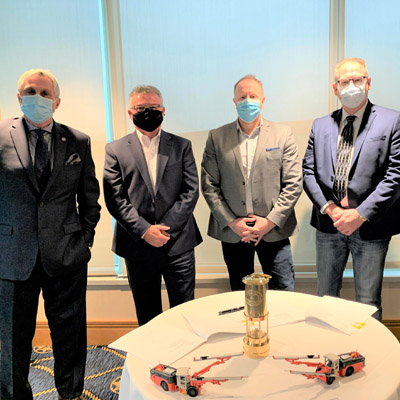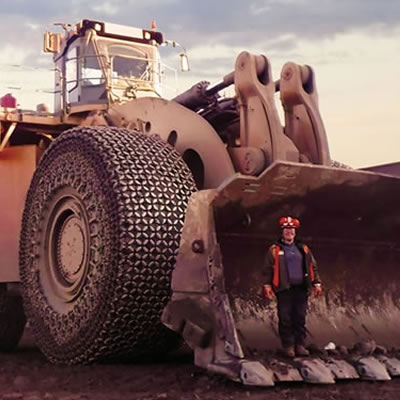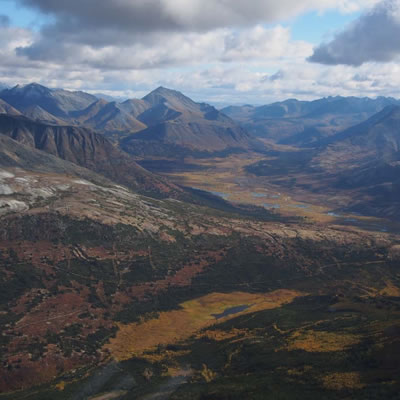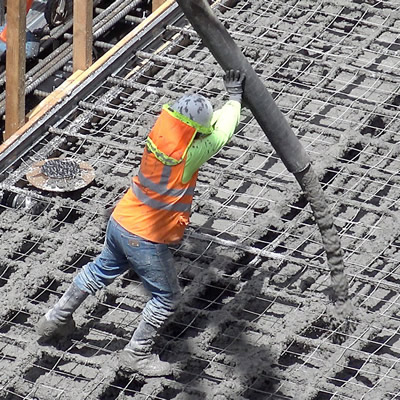Yukon and Alaska: a significant collaboration

1 of 3A student tries out a mining simulator at Yukon College. — Archbould.com photo2 of 3Welding programs at Yukon College are always operating at ca
1 of 3A student tries out a mining simulator at Yukon College. — Archbould.com photo
A new relationship has formed in Canada's North that will mean amazing new opportunities in the mining sector in Yukon—and because of this relationship, people will have the opportunity to gain the knowledge they need to make a career in the mining industry.
On October 11, 2012, the governments of Yukon and Alaska—along with Yukon College and the University of Alaska—signed a new memorandum of agreement (MOA) to promote mutual co-operation in industrial and mine training.
Sheila Rowles, executive director of the brand new Centre for Northern Innovation in Mining, located within Yukon College, said Yukon College has a long history of collaborating with the University of Alaska, but fairly recently, it saw the opportunity to collaborate with its close neighbour when it comes to the world of mining.
"It will bring opportunities to share expertise, curriculum and ideally faculty across our jurisdictions so we'll be able to benefit from one another's expertise," said Rowles. "We have similar situations in regards to both having hard rock and placer mines. We are also all living in a northern isolated environment. Because of the commonalities our two jurisdictions have, it makes a lot of sense to work together on this instead of independently."
The intention of the new centre, said Rowles, is to have a one-stop shop for anything related to mine training. The centre will provide training for entry-level positions or opportunities for people already employed with the mines to upgrade their skills. Comprehensive trades training related to mining will also be available. Right now, Yukon College is in the process of securing funding from territorial and federal governments so it has a solid development plan over the next five years.
"Part of our mandate is to provide as much mobile training as possible as well," said Rowles. "This is so not all people in rural Yukon have to leave their communities in order to take part in training—we'll bring the training to them. It's fairly comprehensive and we want to cast the net wide. Even though we have a small population, we don't want to limit the potential and possibilities that people have to engage in this labour market."
The training has already begun, with the first year of a two-year mineral resource technician diploma program already underway. The intro to mining operations program is also just on the horizon—a program in which students will learn more about mining by spending three to four days right off the bat in three operating mines in Yukon. Students will then return to Whitehorse with a specialty and focus. Rowles said the centre also ideally wants to attract people with skills like Class 1 driving experience but who might never have worked in a mine.
"We want to take those focuses and say, 'If you want to get into this type of work, here's what it's like to drive a haul truck,' " said Rowles. "We have a couple of simulators, so people get that experience, then we follow up with another two-week work placement again at one of the three mines. So people right from the get-go have the opportunity to explore the world of mining in a supportive environment and see if it's right for them."
Rowles said this relationship is special for a couple of reasons. First, Alaska has a very long history of underground mine training.
"These are highly successful models embraced by industry in Alaska," said Rowles. "We see this as a real opportunity to benefit from their experience. They've indicated they are willing to share curriculum and even have some of their more senior instructors mentor some of our newer instructors, so that we have a bit of wisdom from the get-go."
Rowles said the University of Alaska - Fairbanks has some fairly significant research and undergrad programs in mining engineering and geological studies, so Yukon College will be exploring collaboration in that area as well to provide yet another pathway for people in the territory.
Currently, there are three operating mines in Yukon, with the newest one, Yukon Zinc Corporation's Wolverine Mine, almost at full production. Rowles said the North is anticipating a significant labour shortage in the next 10 years, with an expected 2,500 people needed to fill jobs.
"So this collaboration is extremely important," said Rowles. "It's a shortage we're all facing, so rather than keeping the cards close to our chest, we feel like we're all in this together and we need to figure out ways to collaborate and offer more opportunities to the people we serve. It's a really exciting time in the territory with having incredible support from industry and government. It really feels like a team effort and this collaboration with Alaska reinforces the whole team spirit."




